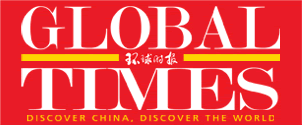
State-owned enterprises (SOEs), often seen as China's national champions, are poised to become global champions as the world's second-largest economy enters a new era, but more efforts are needed to facilitate this leap.
In September 2015, the Communist Party of China (CPC) Central Committee and the State Council unveiled guidelines to deepen SOE reforms, which envisioned making SOEs stronger, better and bigger and nurturing key SOEs that are both innovative and globally competitive.
In a report delivered to the opening of the 19th CPC National Congress last month, General Secretary of the CPC Central Committee Xi Jinping said that China will support State capital "in becoming stronger, doing better, and growing bigger" and "turn Chinese enterprises into world-class, globally competitive firms."
These comments provide a glimpse of the CPC Central Committee's new vision for deepening reform at SOEs, which essentially signals new requirements for the State companies to pursue deeper reform as socialism with Chinese characteristics enters a new era.
In recent years, big Chinese enterprises, centrally administered SOEs in particular, have experienced changes in their management practices and business operations. These enterprises have grown stronger and more competitive, and they have made significant headway in tapping into overseas markets. Nevertheless, China's SOEs are mostly still in their infancy in terms of internationalization. Compared with the world's leading multinationals, Chinese SOEs lag behind in terms of international operations, capacity for technological innovation and cross-cultural management.
By contrast, leading multinationals have basically finished their strategic transition toward being genuine globalized companies, judging by such metrics as their global footprint, the availability of an Internet-based management mechanism, global talent recruiting, the ability to make money from capital operations, and the importance attached to corporate citizenship.
To ensure SOEs beat the competition amid overseas expansion, they must transform themselves into world-class and globally competitive entities. But how can that goal be achieved? According to the report to the Party Congress, the country will "improve the systems for managing different types of State assets, and reform the system of authorized operation of State capital." In the State-owned sector, China will step up improved distribution, structural adjustment, and strategic reorganization.
Cues on the road map for Chinese SOEs to become global champions can be taken from the report. It is believed the road map consists of three parts: continuing reforms of the State capital supervision system, deepening SOE reform and honing global competitiveness.
First, since the third plenum of the 18th CPC Central Committee in November 2013, the country's supervision of State capital has undergone a major shift from regulating SOEs to regulating capital. It has now largely focused on managing the allocation of State capital, increasing the return on State capital investments and safeguarding State capital security, which fundamentally aims to translate State capital into a viable powerhouse.
In specific terms, this means a clear-cut classification of SOEs that are commercially oriented or provide public goods, based on which the SOE reform will be pushed in a classified manner. Additionally, there's room for improvement in the State capital's business operating system through building State capital-invested and operated companies, strengthening supervision over State-owned assets in a capital-oriented way, and establishing a budget system for State capital business operations. Furthermore, the allocation of State capital can be optimized along with supply-side reform at SOEs and the restructuring and strategic reorganization of the State sector.
Second, the country should take a deeper dive into the SOE reform and develop a mixed-ownership economy. On the back of 10 reform pilot programs for SOEs launched in early 2016, including an employee stock ownership plan at mixed-ownership enterprises, plans to put the power of the board of directors into effect, and a market-oriented approach to SOE management hiring, the 19th CPC National Congress stressed the need to develop mixed-ownership economic entities. Also, the Party Congress clearly stated the nation will introduce a "negative list" for market access nationwide, sort through and do away with regulations and practices that impede the development of a unified market and fair competition, support the growth of private businesses, and stimulate the vitality of various market entities. It is therefore anticipated that following the introduction of the negative list, SOEs will accelerate their mixed-ownership plans by allowing participation by non-State capital.
Third, Chinese SOEs should learn from leading multinationals' experience in honing global competiveness. This suggests a path forward on efforts to develop a globalized mentality, enhance corporate governance, build core strengths and increase power of discourse globally. Beyond that, they are supposed to capitalize on the Belt and Road initiative as part of their ambition to become globally competitive in a situation where Chinese SOEs rise to prominence in their global market clout.
The author is senior economist and deputy director of the research and consulting center of China COSCO Shipping Corp.


